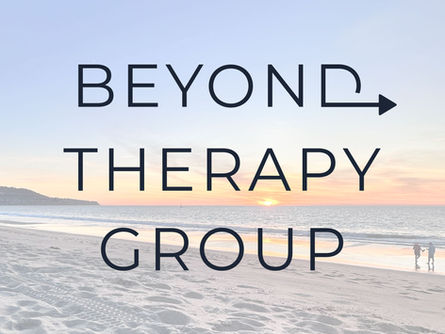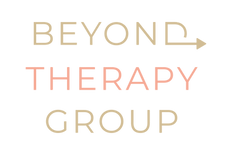July 4, 2025
Innovations in Treatment for Alcohol Use Disorder: From Medications to Digital Therapies

Alcohol Use Disorder (AUD) affects millions of people in the U.S. and globally, touching individuals from every walk of life. While traditional treatment approaches such as 12-step programs and talk therapy have long provided support, new advances are reshaping how we understand and treat this complex condition.
At Beyond Therapy Group, we believe that every individual deserves a personalized, effective path to recovery. Thanks to breakthroughs in medication, brain science, and digital technology, there are now more tools than ever to help people reduce or eliminate their alcohol use in sustainable, evidence-based ways.
Let’s explore the latest innovations in AUD treatment from pharmacology to teletherapy to digital recovery apps and how they offer renewed hope for those seeking change.
Understanding Alcohol Use Disorder: A Chronic Yet Treatable Condition
Before diving into innovations, it’s helpful to reframe how we view AUD. It’s not simply a matter of willpower or moral failing AUD is a chronic medical condition characterized by a problematic pattern of alcohol use that leads to distress and functional impairment.
The causes are multifaceted: genetic vulnerability, psychological factors, trauma history, social environments, and co-occurring mental health conditions often play a role. Because of this complexity, treatment is most effective when it’s integrative, flexible, and evidence-based.
A Shift in the Treatment Landscape
Historically, the most well-known treatments for AUD included:
- Abstinence-based models (e.g., 12-step programs like AA)
- Inpatient or outpatient rehabilitation
- Psychotherapy (especially CBT and motivational interviewing)
While these remain valuable tools, they may not work for everyone and many people don’t seek help because of stigma, fear of judgment, or the misconception that they must quit drinking completely to get support.
That’s why innovations in medication and digital health are so promising. They meet people where they are, often offering harm-reduction models, privacy, and convenience that increase accessibility.
New Medications for Alcohol Use Disorder
Pharmacotherapy is gaining momentum as a vital part of AUD treatment. There are now several FDA-approved medications that can support individuals in reducing or abstaining from alcohol.
Naltrexone
Naltrexone blocks the brain’s opioid receptors, which are involved in the reward response to alcohol. It helps reduce cravings and diminishes the pleasurable effects of drinking. It’s often taken daily or as a long-acting monthly injection (Vivitrol).
Ideal for: People looking to reduce heavy drinking or prevent relapse.
Acamprosate (Campral)
This medication stabilizes chemical signaling in the brain disrupted by chronic alcohol use. It supports abstinence by reducing emotional and physical discomfort in early recovery.
Ideal for: Those who are already sober and want support maintaining abstinence.
Disulfiram (Antabuse)
Disulfiram creates unpleasant reactions when alcohol is consumed (e.g., nausea, flushing), acting as a deterrent. While less commonly prescribed today, it can be effective with proper medical supervision and motivation.
Ideal for: Individuals committed to abstinence with strong external supports.
Off-label Medications (e.g., Topiramate, Gabapentin)
Certain anti-seizure and mood-stabilizing medications have shown promise in clinical studies, especially for patients with co-occurring anxiety or withdrawal symptoms.
These medications are most effective when combined with therapy, lifestyle changes, and social support.
Digital Therapies and Online Support Tools
Perhaps the most exciting innovation in AUD treatment is the rise of digital therapeutics evidence-based interventions delivered via apps, telehealth, and online platforms.
Teletherapy & Virtual Counseling
The COVID-19 pandemic accelerated the growth of teletherapy, making it easier than ever to receive support from licensed therapists remotely. Online therapy is:
- Discreet and accessible from home
- Often more affordable than in-person care
- Flexible for those with busy or irregular schedules
At Beyond Therapy Group, we offer secure, HIPAA-compliant telehealth services for AUD and co-occurring mental health conditions.
Recovery Apps and Digital CBT
Apps like Ria Health, Monument, Sober Grid, and I Am Sober combine behavioral tools, support communities, tracking features, and even access to doctors or coaches. These platforms offer:
- Personalized goal setting (abstinence or moderation)
- Cognitive Behavioral Therapy (CBT) modules
- Daily check-ins and progress tracking
- Peer support and community forums
Digital platforms are especially helpful for people who aren’t ready for traditional therapy or group meetings but still want structured support.
Online Moderation Programs
Programs like Moderation Management provide non-abstinence-based resources for people looking to reduce drinking without quitting entirely. These programs are grounded in behavioral science and harm-reduction strategies.
Brain-Based Therapies and Neuromodulation
While still emerging, brain-based interventions like transcranial magnetic stimulation (TMS) and neurofeedback are showing promise in treating addiction-related cravings and mood regulation.
- TMS uses magnetic fields to stimulate specific areas of the brain involved in reward and impulse control.
- Neurofeedback teaches the brain to self-regulate by providing real-time feedback on brain activity.
These approaches are often used as adjunct treatments for clients who haven’t responded well to traditional therapies.
The Role of Therapy in Modern AUD Treatment
Despite all these technological and pharmaceutical advancements, psychotherapy remains a cornerstone of recovery. Medications can reduce cravings. Apps can build routines. But therapy helps people understand why they drink, how it functions in their lives, and what they truly need to heal.
At Beyond Therapy Group, we use an integrative approach that may include:
- Relational Therapy to explore attachment wounds and interpersonal triggers
- Cognitive Behavioral Therapy (CBT) to reframe thoughts and behaviors
- Motivational Interviewing (MI) to enhance readiness for change
- Trauma-informed therapy for those with abuse, PTSD, or complex trauma histories
Our therapists collaborate with clients to build a care plan that supports long-term change not just short-term sobriety.
FAQs About Innovative AUD Treatments
- Do I need to quit drinking completely to get help?
Not necessarily. Many modern treatment plans support harm reduction reducing frequency or quantity of drinking. The goal is progress, not perfection. - Can I do therapy and medication at the same time?
Absolutely. In fact, studies show that combined treatment is the most effective. Medications can reduce cravings, while therapy addresses root causes. - What if I’ve tried to quit before and relapsed?
Relapse is not failure it’s part of the recovery process for many people. New tools like digital apps and alternative medications may offer support that previous approaches didn’t. - Are these new treatments covered by insurance?
Some telehealth platforms and medications are covered by insurance. At Beyond Therapy Group, we can help explore your options and recommend trusted resources. - How do I know which treatment is right for me?
The best treatment is the one tailored to your needs. We start with a thorough assessment to recommend a mix of tools that fit your lifestyle, goals, and readiness to change.
Finding the Right Path with Beyond Therapy Group
Recovery from Alcohol Use Disorder looks different for everyone. That’s why our team at Beyond Therapy Group is committed to personalized care that combines compassion, innovation, and clinical expertise.
Whether you’re just beginning to question your drinking or looking for alternatives after multiple attempts, we’re here to support you with therapy, telehealth, referrals, and collaborative care planning.
Ready to explore a new way forward?
Reach out to us today to schedule a consultation and learn how the latest treatment options for AUD can support your path to healing.
Recent Posts
